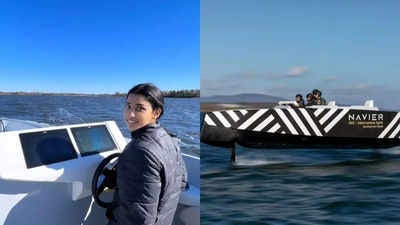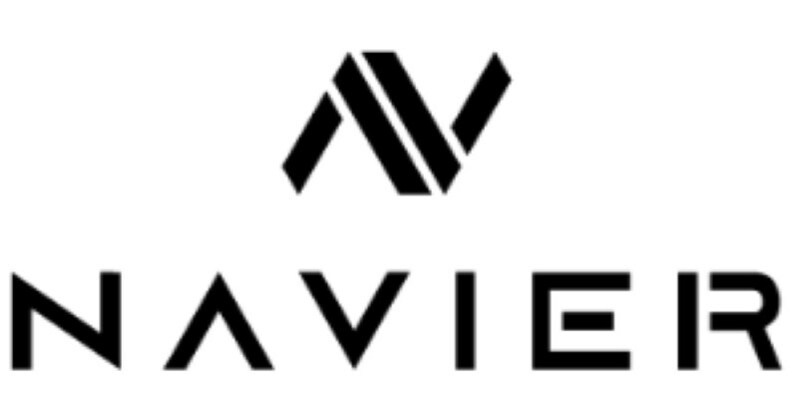In the naming business, a naming brief is a detailed written document that serves as a road map for name development and legal review. (Read more about the naming brief here.) The naming briefs in this newsletter are something else: short reports on names I’ve spotted in the wild or in my reading. Fifth in a series; see the intro to Naming Briefs #4 for links to previous Naming Briefs. Have you come across an interesting company or product name you’d like me to critique? Let me know in a comment.
Nuvet
The New Yorker called Lee Eisenberg, an Emmy-nominated writer turned entrepreneur, “the Thomas Edison of bedding,” and while that sounds slightly hyperbolic, I have to allow that Eisenberg is on to something with his slightly-but-significantly reinvented duvet covers. The problem: If you own anything larger than a twin-size duvet, replacing the cover is a frustrating chore. Heavy! Awkward! The solution: Nuvet’s “ultra-luxe, patented 3-sided hidden-zipper duvet cover that should have been invented forever ago.” Eisenberg, the son of an Israeli immigrant (like me!), wasn’t the first person to come up with this idea; he paid the original patent holder $15,000 for her design. But he’s certainly doing his darnedest to spread the word. I like the company’s elegant wordmark and its rhyming tagline—”Less struggle, more snuggle”—but the Nuvet name, suggested by a friend of Eisenberg’s who is not in the naming/branding business, does not impress. There are a zillion NU-something names out there (see my old post about Numi, Noomi, NuMe, et al.). There also are several veterinary Nuvets, including NuVet Labs (“Your Pet’s Best Friend”). “New” is not a distinctive selling proposition; any duvet cover I buy today will be “new.” Tell me a more interesting story! Not that anyone asked, but Zuvet — Z for zipper — would have been a little zippier and less predictable. Or how about ZZZuvet?
TRYP
Reader Michael Vnuk, from Adelaide, Australia, emailed this suggestion to me under the subject line “Awkward name.” He wrote:
An upmarket hotel that has been built recently in Adelaide is called ‘Tryp’. I think that it’s meant to be pronounced as ‘trip’, but Y is a funny letter, and some people might mistakenly pronounce it the same as ‘tripe’, especially because the hotel’s website uses Y for I a lot, eg ‘HY THERE’, ‘WYNE AND DYNE’, ‘REVYVE + THRYVE’.
Ryght you are, Michael.
TRYP—that’s how they style it—is an international chain of independently owned hotels that was acquired in 2010 by the bigger Wyndham chain from Sol Meliá, the Spanish company that has continued to operate the properties. There are TRYP hotels in six East Coast U.S. cities and in Mexico, Panama, Europe, and Asia.
I’ve collected “Y for an I” brand names for many years; you can see 42 of them on my Pinterest board. They were an unfortunate trend of the 2010s, promulgated by business owners who mistakenly believed you could turn a generic name into something distinctive by altering its spelling. (Lyft is one of the more successful examples, at least financially.) TRYP may have looked stylish to the Spanish founders of the company; to English speakers it’s pedestrian and, as Michael points out, confusing. Or worse: Think psychedelic trips or the amino acid L-Tryptophan.
Associating TRYP with Wyndham does suggest the correct pronunciation. So why is the company undercutting that connection with a bunch of misleading cues like “HY THERE”? If you’re going to double down on a dumb name like TRYP, at least give us some relevant Y-vowel sounds: PAY US A VYSIT. STYCK AROUND. YOU’LL FLYP.
Navier
The only thing I dislike about water transport in the Bay Area is that there isn’t more of it. I love taking the ferry from Oakland to San Francisco, and I got a kick out of my one short-hop water-taxi trip along San Francisco’s Embarcadero. So I was happy to read about a new company, founded in 2020, that’s planning a “flying water taxi” service to San Francisco International Airport, using pollution-free electric hydrofoils .
“Ten percent of Bay Area traffic is to the airports,” Navier founder and CEO Sampriti Bhattacharyya told the San Francisco Standard in January. “In rush hours, it’s a nightmare—and most airports are close to a marina.” Navier gave the first public demonstrations of its watercraft in May 2023. (Bhattacharyya’s story is an interesting one. She was born in Kolkata, failed high-school physics, and was told to become a housewife. Nevertheless, she persisted, immigrating to the U.S. in 2010, landing internships at Fermilab and NASA, and earning a PhD at MIT. Read this Times of India profile for more.)

So what about the Navier name?
The Standard provides a pronunciation guide — NAV-ee-ay — but no backstory. If I had to guess, I’d venture that it’s coined from “navigate,” but the Frenchified pronunciation is a bit of a mystery and a potential stumbling block. I bet some people will attempt to rhyme the name with “savvier” or even “Navy-er.”
This may not be a problem after all: Passengers may sidestep the company name in favor of the vessel name, N30. Or perhaps Navier will come up with a new name for the shuttle service — something like, say, BayNav. Hello, Dr. Bhattacharyya: Get in touch with me if you want more ideas!








I'm afraid a Zuvet is a veterinarian who works at the zoo.
Nuvet is a shitmanteau and a lousy mark. And everything new now is soon old, so "new" marks inevitably become stale IMO. TRYP could fail if pronounced by German speakers where it'd be "troop"; it also reminds me of the hotel STAY we stayed at in Copenhagen - broadly descriptive and difficult to remember.
I have another thought on Navier (though I DEFINITELY want to pronounce it "navy-er"): "Navire" is "ship" in French. OTOH I don't care what they call it so long as it improves the travel to Bay Area airports.